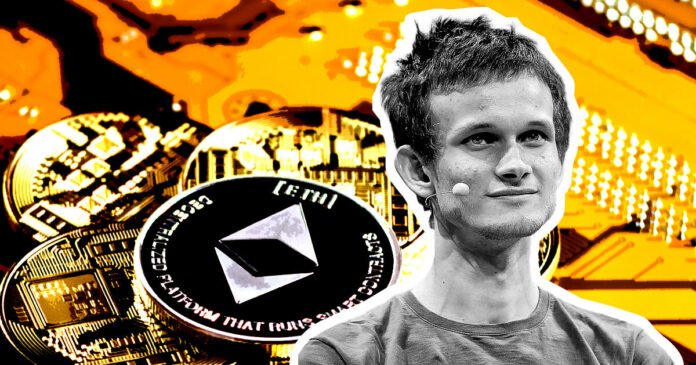Ethereum co-founder Vitalik Buterin spent April Fools’ Day writing both serious and playful content across the Ethereum website and his personal blog. Across the two posts, he advocated protocol simplifications and efficiency improvements while exploring thought-provoking ideas about the future of political and economic systems in an increasingly digital world.
In his more serious post, Buterin detailed the latest hard fork, Dencun, which introduced a series of protocol simplifications as part of the section of the Ethereum roadmap called “The Purge.” This effort aims to streamline Ethereum’s codebase, reduce technical debt, and enhance the platform’s overall performance. Notable changes include the reduction of the SELFDESTRUCT opcode’s functionality, the introduction of a limited storage window for blobs, and the potential removal of rarely used precompiles.
These simplifications are expected to make Ethereum client development and infrastructure building more straightforward, paving the way for increased decentralization and efficiency. Buterin highlighted other examples of “purging” efforts, such as the Geth client dropping support for pre-merge Proof-of-Work networks and an EIP eliminating the need to handle “empty accounts.” Additionally, the Dencun hard fork introduced an 18-day storage window for blobs, significantly reducing the storage requirements for Ethereum nodes.
Another area targeted for simplification is precompiles, which are Ethereum contracts implemented directly by clients. As Buterin noted, precompiles like RIPEMD-160, Identity, BLAKE2, and MODEXP have rarely been used to source consensus bugs and challenges for new EVM implementations. The Ethereum community is considering either removing these precompiles entirely or replacing them with equivalent EVM code.
EIP-4444, which removes the requirement for every Ethereum node to store all historical blocks indefinitely, is set to significantly increase the network’s node decentralization. Under this proposal, entities like block explorers will store entire history, while peer-to-peer protocols can be utilized to store and distribute historical data more efficiently.
Buterin also discussed a proposed LOG reform to remove bloom filters and simplify the LOG opcode. This change would pave the way for separate protocols using zero-knowledge proofs and incrementally verifiable computation to generate provably correct “log trees” for applications requiring decentralized access to logs.
The Ethereum execution layer is also slated to transition from RLP and Merkle Patricia tree formats to the more efficient SimpleSerialize (SSZ) format already employed by the consensus layer. This shift will streamline Ethereum’s cryptographic data structures, potentially leading to a single SNARK-friendly hash binary Merkle tree in the long term.
April Fools’ Day food for thought from Vitalik
While these technical improvements are crucial for Ethereum’s long-term success, Buterin has also been exploring more unconventional ideas about the future of society in the digital age. In a thought-provoking April 1 post titled “Degen communism: the only correct political ideology,” Buterin proposed a new ideology that embraces the chaos and risk-taking of the internet while aligning incentives with the common good.
While the post is undoubtedly an April Fools’ joke on the surface, it raises some interesting questions about the future of political and economic systems in an increasingly digital and decentralized world.
Central to this concept is the idea of “chaos with a purpose,” which suggests that instead of suppressing the volatility and unpredictability of markets and social media, we should harness these forces to drive innovation and progress. Buterin proposes various mechanisms to redirect the benefits of this chaos towards public goods and protect vulnerable individuals from its downsides.
Although “degen communism” is far from a fully-fledged political ideology and is not intended to be taken entirely seriously, it highlights the need for innovative thinking in addressing the complex social and economic issues of the 21st century. By embracing change and experimentation while prioritizing equity and social welfare, we may be better equipped to navigate the challenges and opportunities of the digital age.
As Ethereum evolves, Buterin’s vision for the platform and the broader digital landscape demonstrates a commitment to both technical excellence and social responsibility. The ongoing efforts to simplify and improve Ethereum’s protocol, combined with thought-provoking ideas about society’s future, showcase blockchain technology’s potential to drive positive change on multiple fronts.
While some of the ideas proposed in Buterin’s April Fools’ post, such as Harberger taxes on intellectual property and “proof of stake” schemes for immigration, may seem radical or impractical, they serve as a reminder that addressing the challenges of this century will require bold, innovative thinking. As the Ethereum community works to build a more efficient, secure, and decentralized platform, it is essential to consider the broader implications of these technological advancements and their potential to shape the future of society.
Mentioned in this article
Credit: Source link





















 Bitcoin
Bitcoin  Ethereum
Ethereum  Tether
Tether  Solana
Solana  USDC
USDC  Lido Staked Ether
Lido Staked Ether  XRP
XRP  Dogecoin
Dogecoin  Toncoin
Toncoin  Cardano
Cardano  Shiba Inu
Shiba Inu  Avalanche
Avalanche  TRON
TRON  Wrapped Bitcoin
Wrapped Bitcoin  Bitcoin Cash
Bitcoin Cash  Polkadot
Polkadot  Chainlink
Chainlink  NEAR Protocol
NEAR Protocol  Polygon
Polygon  Litecoin
Litecoin  Internet Computer
Internet Computer  Uniswap
Uniswap  LEO Token
LEO Token  Dai
Dai  First Digital USD
First Digital USD  Ethereum Classic
Ethereum Classic  Aptos
Aptos  Cronos
Cronos  Hedera
Hedera  Stacks
Stacks  Mantle
Mantle  Stellar
Stellar  Filecoin
Filecoin  Cosmos Hub
Cosmos Hub  Renzo Restaked ETH
Renzo Restaked ETH  Pepe
Pepe  OKB
OKB  XT.com
XT.com  Immutable
Immutable  Render
Render  Arbitrum
Arbitrum  Wrapped eETH
Wrapped eETH  dogwifhat
dogwifhat  Bittensor
Bittensor  Optimism
Optimism  Maker
Maker  The Graph
The Graph 
